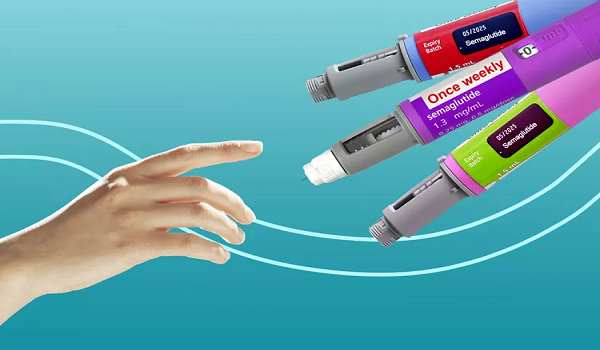As interest in weight-loss medications like Ozempic and Wegovy grows, food companies are cautiously venturing into the market with products tailored to the needs of consumers using these drugs. Nestle, one of the world’s largest food manufacturers, is among the companies introducing new product lines aimed at supporting those on weight-loss medications, but they are doing so with careful consideration of regulatory constraints.
Nestle’s new food brand, specifically designed for individuals taking weight-loss drugs such as Wegovy, will highlight the meals’ high protein, fibre, and nutrient content without directly mentioning the medications. Tom Moe, president of Nestle USA’s meals division, explained to Reuters that the company is avoiding direct references to these drugs on its packaging to sidestep potential regulatory issues.
“We’re not a medication, we’re a food product,” Moe emphasized. Nestle will market its Vital Pursuit line of frozen meals, priced at five dollars or less, through social media rather than making overt connections to the weight-loss medications on the packaging.
The strategy highlights the delicate balance food companies must maintain as they navigate the growing trend of dietary products aimed at people taking GLP-1 agonists, a class of drugs that includes Novo Nordisk’s Wegovy and Ozempic. These medications, known for suppressing appetite, are causing significant shifts in eating habits and could impact the sales of traditional snack foods and fast food.
Nestle’s careful approach contrasts with other companies like Herbalife and Robard Corp., which are more openly linking their products to weight-loss medications. Herbalife, for instance, promotes a GLP-1 companion pack on social media, while Robard Corp. markets Biocare, a $4.50 per serving drink, claiming it alleviates side effects for those on semaglutides.
Dr. Lauren Handel, an attorney specializing in food regulations, warns that explicitly naming medications on food packaging could imply a medical claim, potentially drawing scrutiny from regulatory bodies like the U.S. Food and Drug Administration (FDA). “The safest course of action is not to mention any drugs,” Handel advised, suggesting that companies should focus on general health attributes such as high protein and fibre content.
Retailers like GNC are also capitalizing on the trend by introducing sections dedicated to GLP-1 users, offering protein powders and fiber supplements. This move aims to tap into the growing demand for products that align with the dietary needs of those taking appetite-suppressing medications.
Coca-Cola and Danone are positioning their existing products, such as Fairlife protein shakes, as suitable for people using these drugs. Although Fairlife has not established formal partnerships with influencers linking its products to weight loss, its high-protein shakes are frequently mentioned by social media users who are on GLP-1 medications.
Conagra Brands, the maker of Healthy Choice meals, is similarly cautious, opting not to mention the drugs by name on its packaging. The company plans to highlight the nutritional benefits of its products, such as their protein and fibre content, to appeal to consumers using weight-loss medications without alienating those who are not.
As food companies like Nestle, Conagra, and others explore the market for weight-loss drug-friendly foods, they are treading carefully to avoid regulatory pitfalls while still appealing to a burgeoning customer base seeking dietary solutions that support their health and wellness journeys. The challenge lies in creating new associations and educating consumers on the benefits of these specialized products without overstepping legal boundaries.


